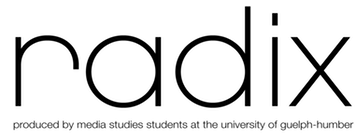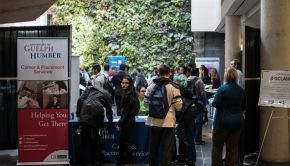Will the Fair Elections Act affect student voters?
Faisal Hassan, the New Democratic Party candidate for Etobicoke North, believes the Fair Elections Act is a threat to the students of Etobicoke North seeking to cast their ballot in this upcoming federal election.
Within the controversial act, formally known as Bill C-23, are changes to the options voters have in proving both their identity and living residence needed in order to vote.
According to Rajean Hoilett, Chairperson for the Canadian Federation of Students-Ontario, there are a number of changes that will affect students’ ability to vote. Among these changes, the most harmful to students is the banning of voter information cards as valid proof of residency, said Hoilett.
“A lot of students are living away from home and have a lot of difficulty proving where they live. They don’t necessarily get mail to their house or aren’t necessarily on the lease for their apartment if they live in residence with other people,” said Hoilett.
The Conservative Party of Canada, which enacted the bill in June 2014, has been accused by individuals, like Hoilett, as using the Fair Elections Act as a way to suppress the votes of students in their party’s favour.
This bill, Hoilett said, sets out to make the voting process more difficult for the groups most likely to not vote for the Conservatives.
“We’re talking about the students, we’re talking about low-income folks, we’re talking about aboriginal communities that have been very critical of this government that will be most impacted by this act,” said Hoilett.
Hassan, who calls it the Unfair Elections Act, is already seeing the negative impact this bill is having on students. Under the Fair Elections Act, Elections Canada’s Chief Electoral Officer cannot run public education programs to inform the public of their voting rights, said Hassan. Elections Canada also faces restrictions against encouraging voting within the public, Hassan said.
“In this campaign, I fear that many students are going to be turned away at the polling stations on election day,” said Hassan.
Changes to voter vouching are also deserving of criticism, Hassan said.
Students without identification containing their current address can take an oath upon which they must provide two pieces of name identification and have someone attest to their address, Hassan said. However, this person must only vouch for one other person, be registered in the same polling division, and provide their own identification.
Despite these changes, there are still ways for students to exercise their right to vote, said Hassan.
Just providing a driver’s license or Canadian passport, Hassan said, satisfies the requirements needed to vote. Students who may not have these items can show any two pieces of identification: student identity card, health card, credit card and more.
Students of Etobicoke-North can vote at 200 Ronson Dr., Unit 201 until the end of Oct. 13. Go to www.elections.ca for a full list of valid identification items.
Educating students to make sure they have sufficient identification is a top priority in his campaign, Hassan said.
“Students impact society and are important voters,” said Hassan.





